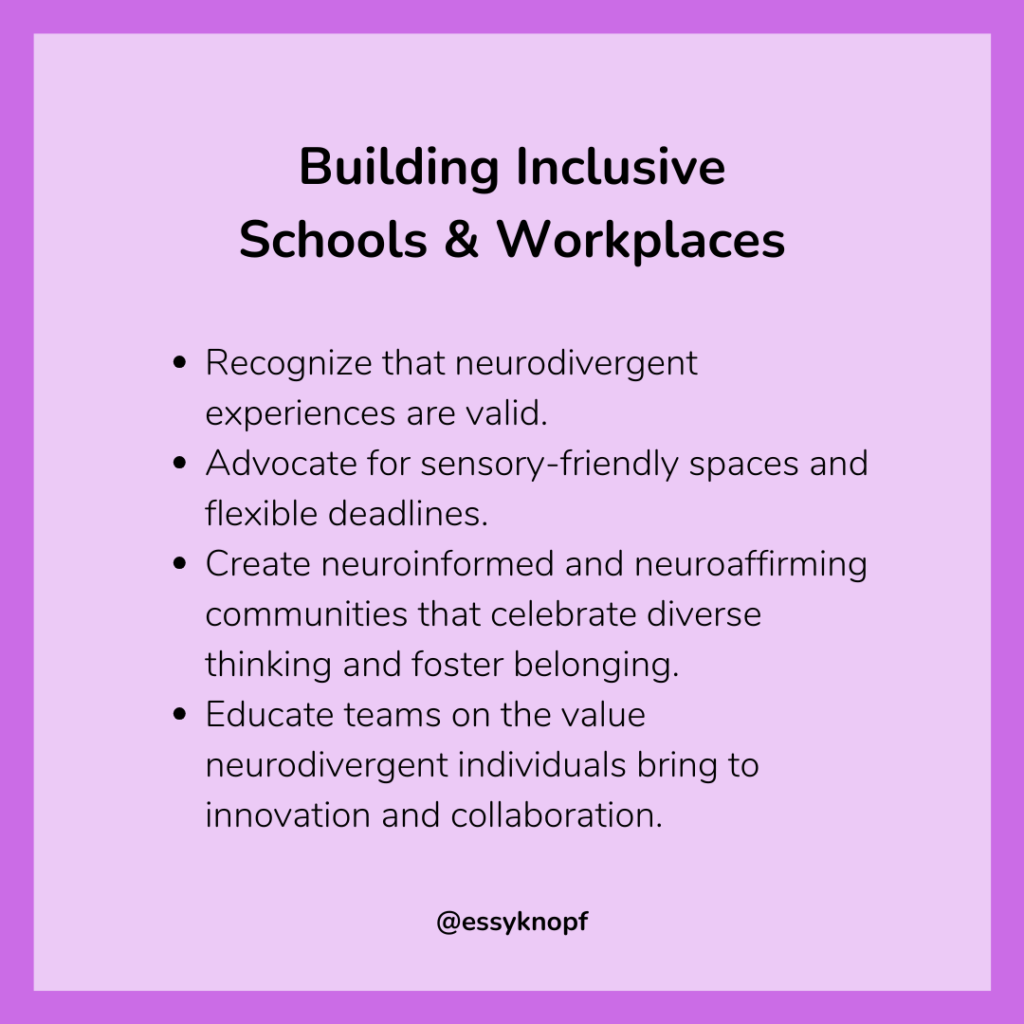Living in an ableist dystopia: The daily struggles of being neurodivergent
Have you ever wondered why dystopian fiction resonates so deeply? Why so many neurodivergent (ND) folks find themselves drawn to these stories of oppression, survival, and rebellion? Perhaps it’s because, for many of us, dystopia isn’t fiction—it’s a daily reality.
As an autistic and ADHD therapist, I’ve seen firsthand how ableism structures our world in a way that excludes, punishes, and marginalizes NDs. The struggle to exist in a system designed for neurotypicals (NTs) often forces us to mask, suppress, and overcompensate, leading to exhaustion, anxiety, and internalized shame.
But before diving into these parallels, let me share a short fictional excerpt that reflects the lived experiences of many NDs.
A Dystopian Reflection
Imagine a future where a pandemic has erased humanity’s capacity for empathy. Society becomes a place where deception and manipulation are survival skills, and those who remain kind are outcasts. One individual struggles to navigate a world that sees their honesty as foolishness and their empathy as weakness.
At home, their parents criticize them for failing to conform. At school, they’re ostracized. Attempts to challenge injustice result in punishment. Seeking refuge in books and video games, they create their own worlds to escape the cruelty of the one they live in.
Sound familiar?
For many autistics and ADHDers, this isn’t just a story—it’s life. We grow up painfully aware that we are different but unable to explain why. Our deep empathy, sense of justice, and unique way of experiencing the world often make us targets rather than allies. And when we speak up, we’re told we’re too rigid, too emotional, or too much.
Ableism as the Silent Oppressor
Ableism—the belief that NT functioning is superior—permeates every aspect of society. Schools, workplaces, and social spaces are structured to accommodate NT needs while dismissing those of NDs.
Most office spaces are sensory nightmares. Open-plan environments are overwhelming, social interactions are forced, and expectations around communication favor NT norms. Employers often expect ND employees to “just deal with it” rather than making reasonable accommodations.
Schools demand that ADHDer children sit still, remain silent, and suppress their natural learning styles. Autistic students are punished for stimming or struggling with social interactions. Instead of adapting the environment to meet diverse needs, institutions enforce compliance, leading many ND students to associate learning with trauma.
Because NDs behaviors are often viewed as problematic, many of us learn to mask. We camouflage our traits to fit in, suppressing stims, forcing eye contact, and mimicking NT speech patterns. But masking comes at a high cost—leading to burnout, identity erosion, and mental health struggles.
The Double Standard of Accommodation
Consider this: When an ND requests an accommodation—like adjusting the room temperature or asking for a seat change—it’s considered reasonable. But when an ND asks for a quiet workspace, flexible deadlines, or sensory-friendly environments, it’s often met with resistance.
Even something as simple as requesting a classroom change due to a noisy air conditioning unit can feel like an undue burden. This reluctance to provide accommodations reinforces the idea that our needs are “too much.”

Breaking the Silence: The Power of Self-Advocacy Amid Ableism
Many NDs internalize shame, believing they are burdensome for needing accommodations. But advocating for ourselves isn’t just about personal survival—it benefits everyone.
When we challenge ableist structures, we create ripple effects that help others. Speaking up about sensory issues in a classroom, for example, can lead to changes that improve the learning environment for all students, ND or not.
Here’s how we can start dismantling this dystopia:
- Reject the shame: Recognize that needing accommodations is not a failure, but a right.
- Speak up: Whether at school, work, or in medical settings, advocate for what you need.
- Find community: Connect with others who understand your struggles. Shared experiences build resilience.
- Educate others: The more people understand neurodivergence, the harder it becomes to justify exclusion.
Final Thoughts
In dystopian stories, oppression is often met with rebellion. The rise of the neurodiversity movement is our rebellion—an effort to dismantle ableism and demand a society that values ND people for who we are, rather than who we’re forced to pretend to be.
Little by little, we are chipping away at this dystopia, advocating for change, and refusing to be silent. And one day, when these rigid structures crumble, we will build in their place a world where all minds are valued equally.
What has been your experience navigating an ableist world? Share in the comments!

Essy Knopf is a therapist who likes to explore what it means to be neurodivergent and queer. Subscribe to get all new posts sent directly to your inbox.
© 2025 Ehsan "Essy" Knopf. Any views or opinions represented in this blog are personal and belong solely to the blog owner and do not represent those of people, institutions or organizations that the owner may or may not be associated with in professional or personal capacity, unless explicitly stated. All content found on the EssyKnopf.com website and affiliated social media accounts were created for informational purposes only and should not be treated as a substitute for the advice of qualified medical or mental health professionals. Always follow the advice of your designated provider.


